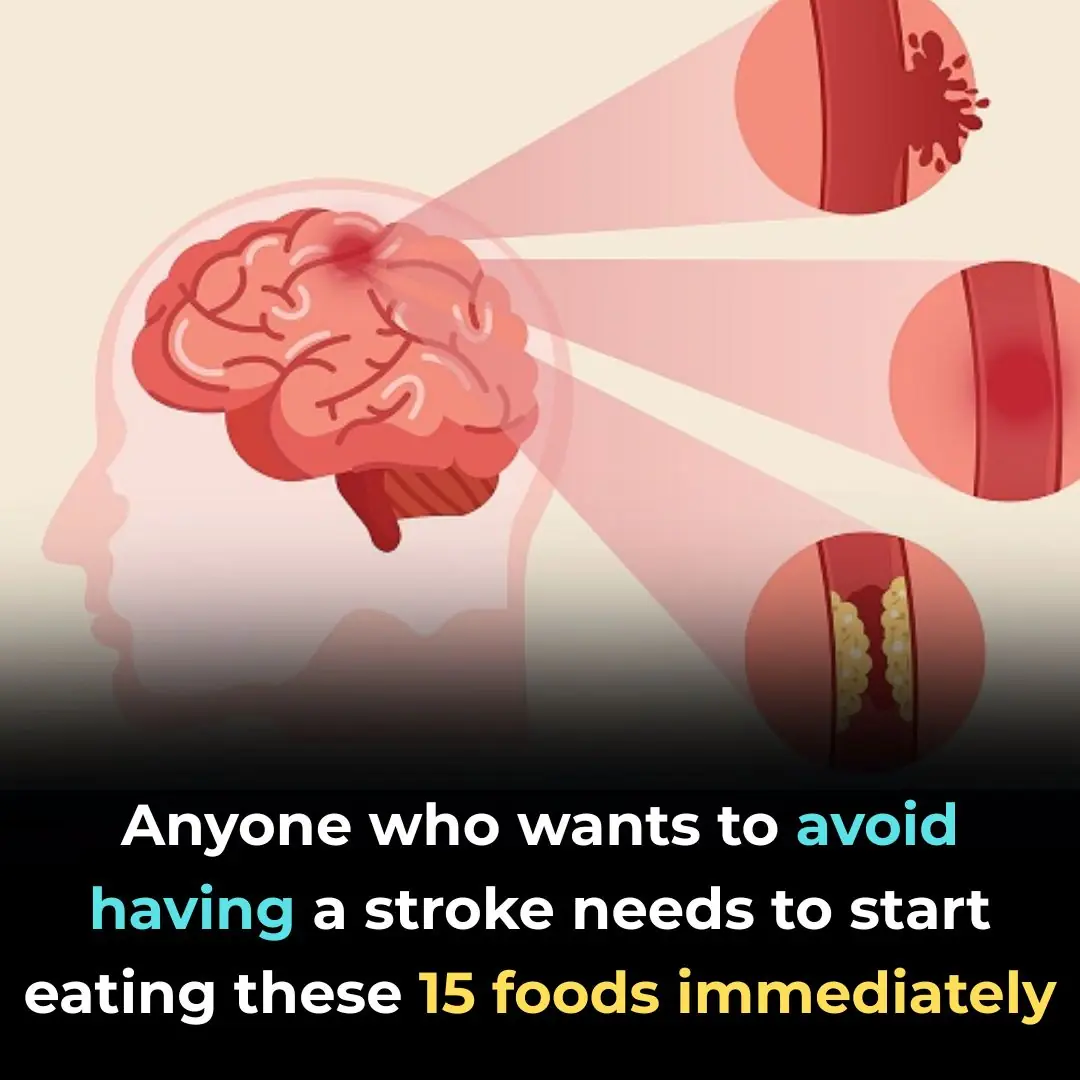
Activate this nerve to fight stress and inflammation naturally – here’s how

What if I told you there’s a single nerve in your body that could reduce your stress, lower inflammation, enhance digestion, and even sharpen your memory—all without a prescription? It might sound like something out of science fiction, but it’s very real. This powerful nerve is called the vagus nerve, and it’s one of the most important—and overlooked—parts of your nervous system.
In our modern world, where stress is constant and rest feels like a luxury, many of us are stuck in a permanent state of “fight or flight.” But here’s the good news: your body comes equipped with a built-in reset button—and the vagus nerve is the key to activating it.
In this article, we’ll explore what the vagus nerve is, why it’s so essential to your health, and how you can stimulate it using simple, science-backed techniques. Small daily habits can unlock big changes—leading to a calmer, healthier, and more balanced life.
🔑 Key Takeaways
-
The vagus nerve is the main component of the parasympathetic nervous system—your body’s natural “rest and digest” system.
-
Chronic stress overstimulates the sympathetic nervous system, keeping your body in a constant state of alert, which contributes to inflammation, anxiety, digestive issues, and more.
-
You can actively stimulate the vagus nerve to promote calm, regulate stress, and support healing.
-
Simple practices like deep breathing, cold exposure, facial massage, proper posture, and mindful sleep routines can enhance vagus nerve activity.
-
A strong vagus nerve supports digestion, heart rate regulation, immune response, memory, and emotional resilience.
1. What Exactly Is the Vagus Nerve?
The vagus nerve (from the Latin vagus, meaning “wandering”) is the longest cranial nerve in your body—and true to its name, it wanders from your brainstem all the way down into your abdomen, touching nearly every major organ along the way.
Think of it as a two-way information highway between your brain and body:
-
80% of its fibers are sensory, constantly collecting data from your organs and relaying it to your brain.
-
The remaining 20% are motor fibers, sending instructions back to the body to regulate heart rate, digestion, inflammation, and more.
The vagus nerve plays a starring role in the gut-brain axis, helping to explain why your stomach churns when you’re nervous, or why poor digestion can affect your mood. This connection has enormous implications for both physical and mental health.
2. The Vagus Nerve: Your Body’s “Calm Down” Switch
Your nervous system has two major divisions:
-
The sympathetic nervous system (SNS) = fight or flight
-
The parasympathetic nervous system (PNS) = rest and digest
The vagus nerve is the command center of the parasympathetic system. When activated, it releases acetylcholine, a calming neurotransmitter that lowers your heart rate, reduces muscle tension, slows breathing, and tells your body it's safe to relax and repair.
In our stress-saturated culture, many people have an overactive sympathetic system and an underactive parasympathetic response. That’s like driving with the gas pedal floored and no brakes.
Strengthening your vagus nerve is like building a better brake system—so your body can shift out of panic mode and into healing mode.
3. Chronic Stress and a Struggling Vagus Nerve
Our nervous systems evolved to handle occasional, life-threatening stress—not the never-ending stream of emails, deadlines, news alerts, and traffic jams we face today. As biologist E.O. Wilson put it, we are “Paleolithic creatures with god-like technology”—and our biology is struggling to keep up.
When you live in a near-constant state of stress:
-
Cortisol and adrenaline levels stay high.
-
Digestion slows or stops.
-
Inflammation increases.
-
Your immune system weakens.
-
The vagus nerve becomes dysregulated.
This condition is called sympathetic dominance—and it’s linked to anxiety, burnout, chronic illness, and even accelerated aging.
4. Signs Your Vagus Nerve May Be Underactive
If your vagus nerve isn’t functioning well, your body will send signals—if you know how to read them:
-
Digestive issues: bloating, acid reflux, constipation, IBS
-
Tension and pain: tight neck and shoulders, jaw clenching, headaches
-
Mood and cognition: anxiety, depression, forgetfulness, poor focus
-
Sleep struggles: trouble falling or staying asleep
-
Immune dysfunction: frequent colds, flus, or autoimmune flare-ups
-
Emotional reactivity: easily startled, overwhelmed by loud sounds or bright lights
These aren’t just isolated problems—they’re signs that your body is stuck in survival mode and needs help finding its way back to balance.
5. Breathe Your Way to Calm
The simplest and most direct way to activate your vagus nerve is through breathing—but not just any breathing. To engage the parasympathetic response, you need to breathe low and slow.
Here’s a quick technique:
-
Inhale through your nose for 4 seconds, sending air into your belly.
-
Exhale through your nose or mouth for 6–8 seconds, longer than your inhale.
-
Repeat for 2–5 minutes.
This kind of slow, diaphragmatic breathing signals safety to your brain. Within seconds, your heart rate slows, your muscles relax, and your vagus nerve lights up.
Tip: Doing this before meals can improve digestion, and doing it before bed can help you fall asleep faster.
6. Physical Practices to Stimulate the Vagus Nerve
Here are some easy, evidence-based ways to support vagal tone in your daily life:
💧 Cold Exposure
-
Splash your face with cold water.
-
Take a cold shower or end your warm one with 30 seconds of cold.
-
Submerge your face in a bowl of ice water for 15 seconds.
This triggers the diving reflex, a powerful vagus-activating response that calms the heart and nervous system.
💆 Massage & Touch
-
Gently massage your face, jaw, ears, and neck—especially around the carotid sinus (just below the jawline).
-
Try gua sha, facial rollers, or simple fingertip massages.
-
Even humming or singing activates the vagus nerve via the vocal cords and ear canal!
🧘 Stretching and Movement
-
Gentle yoga, tai chi, and stretching help release stored tension and promote vagal activity.
-
Avoid high-intensity exercise when you're already stressed—it can push your body further into sympathetic mode.
7. Posture: The Silent Vagus Killer
Posture doesn’t just affect how you look—it affects how you feel.
Stress naturally causes people to:
-
Hunch forward
-
Round their shoulders
-
Tuck in their chins
This compresses the vagus nerve along the neck and chest, restricting its ability to function. Over time, poor posture can exacerbate anxiety and digestive issues.
Stand or sit with intention:
-
Keep your spine tall
-
Relax your shoulders
-
Gently lift your chest
-
Breathe fully and slowly
This physical openness tells your brain you’re safe, supporting vagal tone and emotional regulation.
8. Sleep as a Vagus Ritual
Sleep is when your parasympathetic system takes the lead, restoring balance and repairing the body. But quality sleep doesn’t happen by accident—it needs to be cultivated.
Create a vagus-friendly nighttime routine:
-
Dim lights an hour before bed.
-
Avoid screens and blue light.
-
Use relaxing scents like lavender, chamomile, or sandalwood.
-
Listen to soothing music or guided meditations.
-
Try light stretching or breathing before bed.
-
Consider journaling or reading to calm a racing mind.
Even a consistent bedtime and wake time can support vagal rhythm, improving heart rate variability and emotional resilience.
🧠 Conclusion: Train Your Nervous System, Transform Your Life
Your vagus nerve is more than a bundle of fibers—it’s your body’s internal control center for healing, calm, and connection. You don’t have to be a monk or a neuroscientist to activate it. With small, consistent actions, you can retrain your nervous system to respond to life’s challenges with grace rather than panic.
Here’s your invitation:
-
Breathe slower.
-
Stand taller.
-
Touch with care.
-
Sleep with intention.
-
And remind your body often: you are safe.
When you build habits that strengthen your vagus nerve, you’re not just managing stress—you’re laying the foundation for a longer, healthier, and more peaceful life.
News in the same category


12 Foods With Melatonin You Should Include In Your Dinners To Sleep Like A Baby

White Tongue: What It Means and What You Can Do About It

Arthritis warning: 10 everyday foods making your pain and inflammation worse

World’s deadliest ca:ncer: 8 early warning signs every older adult should know

The Truth About the Thigh Gap: And Why You Don’t Need One to Feel Beautiful

7 Best Nutrients to Prevent Alzheimer’s and Dementia

Coconut Water: Healthy Drink or Hidden Risk? Who Should Avoid It

All You Can Do with Just One Sage Plant: Grandma’s Timeless Uses

Aloe Vera for Varicose Veins and Tired Legs: Natural Relief You Can Try at Home

2 Spoons a Day May Support Joint Health Naturally

Clean Your Lungs and Stop Coughing in 3 Days! The Garlic Remedy for Bronchitis You Need to Try

Powerful Natural Remedies for Ear Infections

Anyone who wants to prevent a stroke needs to start eating these 15 foods immediately

Researchers Explore Potential Dementia Risk Linked to Gabapentin

Could the bacteria in your nose be causing Alzheimer’s? (new study)

New study reveals surprising health benefits of kimchi

Doctor Warns of Mesotherapy’s Risky Side, Causing Reptile-Like Skin

How Often Should You Change Your Underwear?
News Post

My Brother Banned Me from Speaking at Our Mother’s Funeral, Saying ‘No One Wants to Hear from the Adopted One’ — He Never Expected What Happened Next

Bride Walked Down the Aisle Smiling — But After Finding a Note Hidden in Her Bouquet, She Turned Around and Ran from the Wedding

9 Months Pregnant, My Husband Threw Me Out for Another Woman, But I Got the Last Laugh

The Man Who Became a Swan Shepherd.

A Valentine’s Gesture That Touched an Entire Community.

A Prom Night 76 Years in the Making.

The Truth About the Thigh Gap: And Why You Don’t Need One to Feel Beautiful

Mosquitoes fear this bowl of water the most—place it in your home and no matter how many mosquitoes there are, they’ll all disappear, letting you sleep peacefully

When your pan loses all its non-stick coating, don’t throw it away just yet: Do this and your frying will never stick or fall apart again

Eat boiled bananas at this time, and after just one week your body will experience 7 changes: excess fat melts away and your skin becomes smoother and brighter

12 Foods With Melatonin You Should Include In Your Dinners To Sleep Like A Baby

White Tongue: What It Means and What You Can Do About It

Arthritis warning: 10 everyday foods making your pain and inflammation worse

World’s deadliest ca:ncer: 8 early warning signs every older adult should know

The Truth About the Thigh Gap: And Why You Don’t Need One to Feel Beautiful

7 Best Nutrients to Prevent Alzheimer’s and Dementia

Coconut Water: Healthy Drink or Hidden Risk? Who Should Avoid It

Fact & Health Benefits of Ribwort Plantain

7 benefits and uses of Plantago Major
